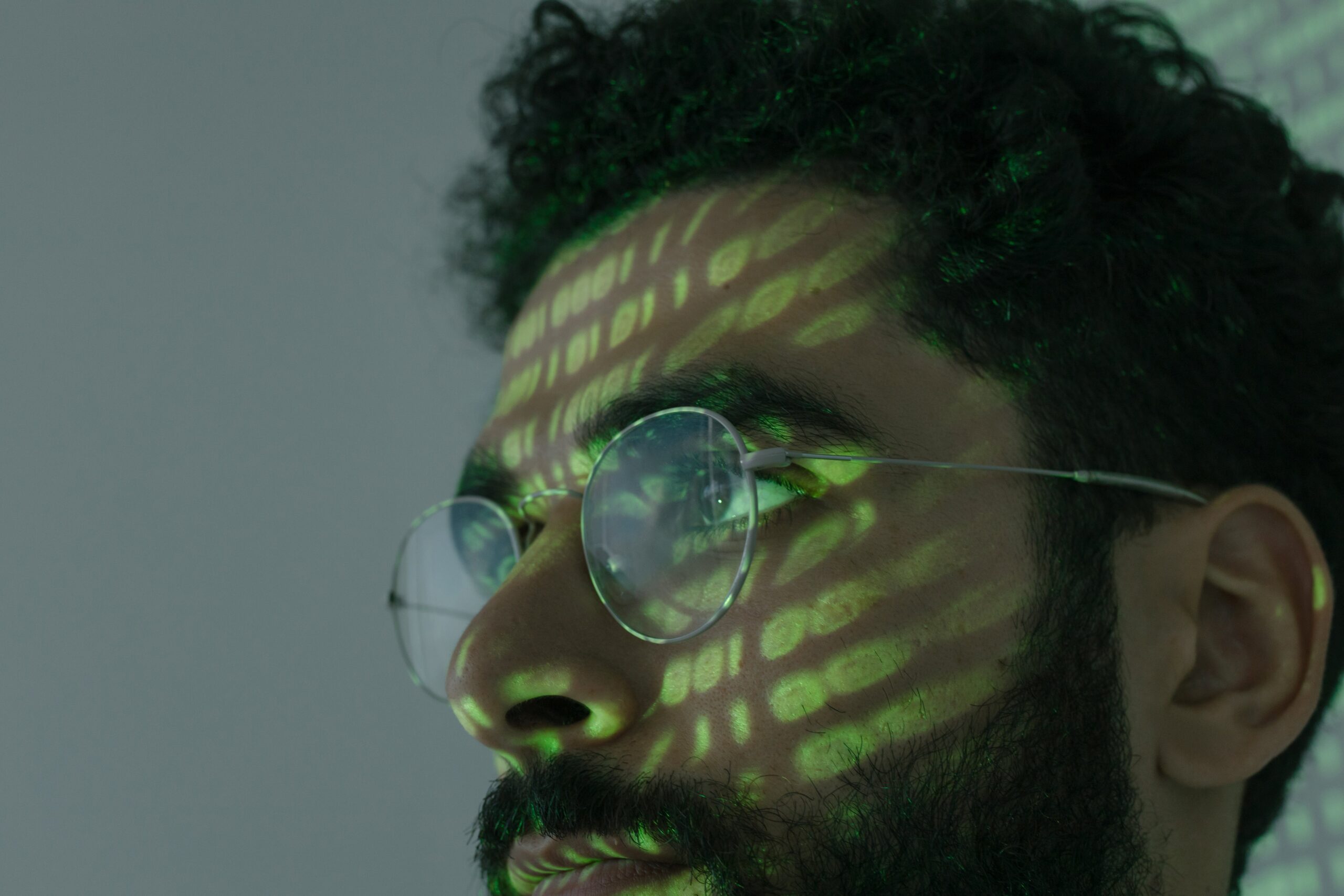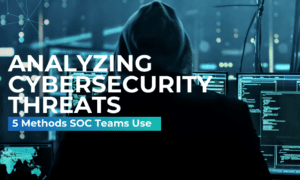Will Cybersecurity Engineers Be Replaced by AI?
In an era where artificial intelligence is reshaping industries, we’ve gathered insights from ten leading voices, including CEOs and Chief Technology Officers, to address a burning question: Will cybersecurity engineers ever be replaced by AI? From AI enhancement not replacing cyber experts to streamlined tasks allowing broad focus, explore the nuanced perspectives on the symbiotic future of AI and human expertise in cybersecurity.
- AI Enhances, Not Replaces Cyber Experts
- Human Problem-Solving Is Essential
- Cybersecurity Engineers Are Empowered by AI
- Human Expertise Remains Crucial in Cybersecurity
- AI’s Current Limitations Secure Human Roles
- AI Transforms, But Won’t Replace Engineers
- Human Nuance Is Key in Cyber Defense
- Foresight of a Collaborative Future
- The Human Element Is at Cybersecurity’s Core
- Streamlined Tasks Allow for Broad Focus
AI Enhances, Not Replaces Cyber Experts
While AI has made significant advancements in the field of cybersecurity, it is unlikely that cybersecurity engineers will be completely replaced by AI. Cybersecurity is a complex and ever-evolving field that requires human expertise and intuition.
AI can assist in automating certain tasks and detecting patterns, but it cannot fully understand the context and intent behind cyber threats. Additionally, human cybersecurity engineers possess critical thinking skills and can adapt to new and emerging threats more effectively.
Therefore, while AI can enhance cybersecurity efforts, it will not replace the need for skilled human professionals in this field.
Alex Stasiak, CEO and Founder, Startup House
Human Problem-Solving Is Essential
The rise of AI has sparked concerns about job security across various professions, including among cybersecurity engineers. However, it seems unlikely that AI might one day fully replace cybersecurity professionals.
While AI can streamline certain cybersecurity tasks, enhancing threat detection and response efficiency, it can’t replicate human expertise. Cybersecurity, requiring the critical thinking skills that it does, is reliant on human problem-solving.
Professionals in this field possess an understanding needed to grasp the context, assess business implications, and navigate complex ethical considerations—skills that AI might never be able to fully replicate.
AI will continue to complement cybersecurity efforts as a valuable tool, but cybersecurity engineers will also continue to play an irreplaceable role, combining their expertise with AI’s support to safeguard against evolving threats.
Jack Vivian, Chief Technology Officer, Increditools
Cybersecurity Engineers Are Empowered by AI
AI will not replace cybersecurity engineers; instead, it will empower them. AI is highly proficient in automating tasks, identifying abnormalities, and analyzing data sets. This enables engineers to shift their attention to responsibilities such as incident response and threat hunting.
By combining the capabilities of AI with expertise, defenses are fortified, enabling engineers to concentrate on making decisions and finding innovative solutions to problems.
Omar Masri, Software Entrepreneur and Founder, Mamori.io
Human Expertise Remains Crucial in Cybersecurity
The question of whether cybersecurity engineers will be replaced by AI is a complex one that requires careful consideration.
While AI has made significant advancements in various fields, including cybersecurity, it is unlikely that cybersecurity engineers will be completely replaced by AI. Cybersecurity is a constantly evolving field that requires a deep understanding of complex systems, threat landscapes, and human behavior. It involves critical thinking, problem-solving, and decision-making skills that are currently best performed by human experts.
AI can certainly augment the work of cybersecurity engineers by automating certain tasks, such as threat detection and response, data analysis, and vulnerability assessments. This allows engineers to focus on more strategic and complex aspects of cybersecurity. However, human expertise is still essential in areas such as risk assessment, policy development, incident response, and ethical considerations.
Moreover, cybersecurity is not solely a technical challenge but also involves understanding the broader business context, compliance requirements, and user behavior. Human cybersecurity engineers possess the ability to navigate these complexities and make informed decisions that align with organizational goals.
While AI can enhance our cybersecurity efforts, the expertise and experience of cybersecurity engineers will continue to be indispensable in safeguarding against emerging threats and ensuring the highest level of protection.
Rubens Basso, Chief Technology Officer, FieldRoutes
AI’s Current Limitations Secure Human Roles
While I’m not sure human cybersecurity engineers will still be in demand in 100 years, I don’t see any signs they’ll be replaced by AI in the upcoming 10 or 20 years. The first reason I think this won’t happen soon is that, nowadays, AI cannot understand context, which is vital in the cybersecurity decision-making process.
The second reason I believe AI can’t yet replace human engineers is because of the constant evolution of cyberattacks. Without human expertise, it would be impossible for AI to adapt to new attack techniques in the upcoming dozens of years. While AI seems to be an independent tool, it still needs to be managed by human specialists.
On the other hand, AI is being rapidly developed and is slowly becoming an integral part of human lives, facilitating plenty of work processes. Who knows, maybe in 100 years, it will be able to deal with all of today’s cybersecurity challenges.
Nazar Tymoshyk, CEO and Founder, UnderDefense
AI Transforms, But Won’t Replace Engineers
The question of whether AI will replace cybersecurity engineers is nuanced. The short answer is that while AI will significantly transform the field of cybersecurity, it’s unlikely to completely replace human cybersecurity engineers. Here’s why:
AI in cybersecurity excels at handling large volumes of data and identifying patterns that might indicate a security threat. This means AI can rapidly sift through data far quicker than a human, spotting anomalies and potential threats with high efficiency. This capability is particularly valuable in an era where the volume of cyber threats is escalating dramatically.
However, AI is fundamentally a tool, and like any tool, its effectiveness is dependent on how it’s used. Human cybersecurity engineers provide the necessary oversight, context, and decision-making skills that AI currently lacks. While AI can identify a threat, it often falls to a human to understand the broader context of that threat, including the motivations behind it and the appropriate response.
Moreover, cybersecurity is a constantly evolving field. As new types of threats emerge, AI systems need to be trained on these new patterns. This training requires the expertise and knowledge of experienced cybersecurity professionals.
There’s also the element of creativity in cyber defense. Cybersecurity professionals often need to think like hackers to anticipate and mitigate potential attacks. This kind of creative and anticipatory thinking is something AI currently cannot replicate.
Edward Marshall, CTO, hedgehog lab
Human Nuance Is Key in Cyber Defense
While skilled AI algorithms can be programmed to detect and respond to potential threats, specific cyber defense nuances and complexities still require human expertise. For example, cybersecurity engineers can analyze large amounts of data to identify patterns and trends that could be indicative of a security breach.
They can apply critical thinking and creativity to develop unique solutions and anticipate potential threats. While AI will undoubtedly continue to play a significant role in cybersecurity, it seems unlikely that AI will entirely replace human cybersecurity engineers soon.
Ben Goodman, Chief Executive Officer, 4A Security
Foresight of a Collaborative Future
As a Cyber Security professional, AI is here to stay. Although the industry may initially see AI as a foe, as we mature and move on in our AI journey, I see AI becoming more of a friend to Cyber Engineers and complementary to them, rather than replacing them. AI would not replace cybersecurity engineers because:
Cybersecurity often requires nuanced decision-making that AI may struggle with. Humans better understand context, which is crucial in cybersecurity to differentiate between false positives and actual threats.
AI systems in cybersecurity still require human oversight. Engineers must interpret AI outputs, decide on ambiguous cases, and provide strategic direction. AI systems themselves can be targets of cyber-attacks.
Engineers are needed to safeguard these systems and ensure their integrity. Also, cybersecurity decisions can have significant ethical and legal implications. AI cannot currently make such judgments, which are often based on societal norms and legal frameworks.
Gaurav Singh, Cyber Security Leader, Under Armour
The Human Element Is at Cybersecurity’s Core
The integration of Artificial Intelligence in cybersecurity has improved the field, allowing for faster and more efficient threat detection and response. However, I don’t believe AI will ever fully replace cybersecurity engineers. Here’s why.
First, AI is excellent at identifying patterns and anomalies, but it lacks the human element of intuition and context awareness. An AI might flag a false positive, while an experienced engineer can discern an innocuous deviation from a genuine threat based on contextual clues that only a human can currently understand.
Second, the cybersecurity field is incredibly dynamic, with criminals constantly evolving and adopting new methods. While AI can promptly adapt to known scenarios using machine learning, it may falter with novel, unanticipated threat vectors that a human expert might detect.
While AI is a powerful tool in a cybersecurity engineer’s arsenal, it is unlikely to take its place. It is this combination of AI and human expertise that will provide the most robust defense against cyber threats.
Craig Bird, Managing Director, CloudTech24
Streamlined Tasks Allow for Broad Focus
As EarthWeb’s editor, I always ask if AI could replace cybersecurity experts, knowing it would change the field. However, a closer study suggests that machines won’t take over—at least not soon. AI can automate tedious cybersecurity tasks and search massive datasets for dangers. This competence allows human engineers to focus on complicated problems, incidents, and strategic decisions.
Human engineers can’t monitor and detect dangers 24/7 like AI-powered technologies can. AI algorithms excel in cybersecurity because they can adapt and learn. AI has some advantages, but humans will always be needed for defense. Critical thinking, complex problem-solving, and decision-making go beyond pattern recognition and fact analysis. Humans recognize context, nuance, and the big picture when assessing security threats.
Human creativity and innovation are needed to resist cyber attackers’ ever-changing strategies. AI can aid, but it can’t replace the creativity needed to anticipate new hazards. Hacks involve social engineering and deception, but AI struggles to detect them. This highlights the need for human intuition and empathy.
In the future of cybersecurity, humans and AI may collaborate to benefit both. AI can analyze data, automate activities, and detect hazards. It helps human engineers make strategic decisions, solve difficult challenges, and focus on people-centered security because they recognize the merits and cons of AI development and cybersecurity specialist training. This ensures a powerful and comprehensive defense against shifting cyber threats.
Finally, AI will increase its involvement in defense, but it won’t replace human engineers. The distinct strengths of people and machines are crucial in the ever-changing combat against cyber dangers. I believe that pairing both fields’ strengths rather than replacing them is the best way ahead.
Jason Wise, Editor, EarthWeb
Related Articles
- What Are the Risks of Artificial Intelligence?
- What is the Best Way to Learn Artificial Intelligence for a Beginner?

































